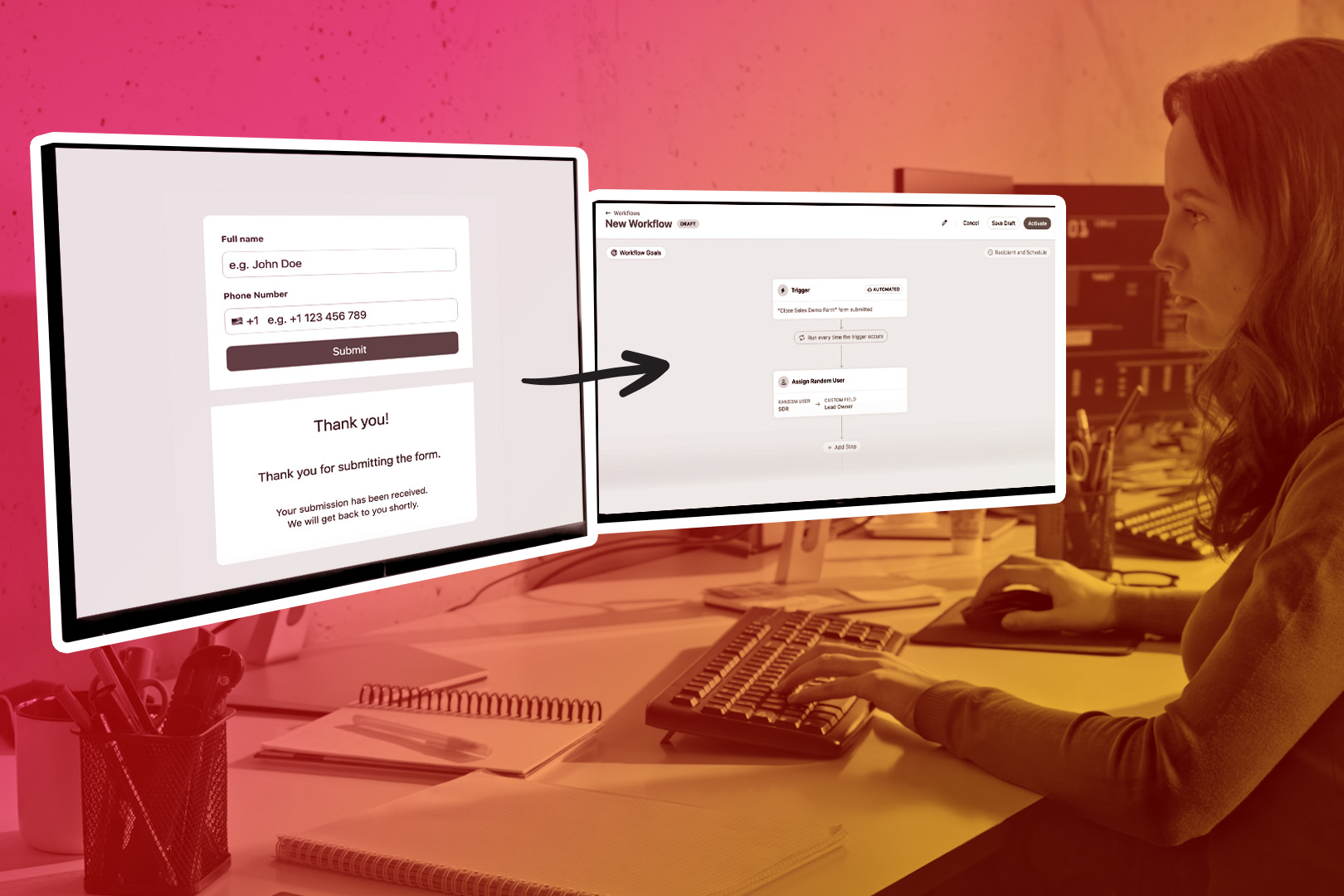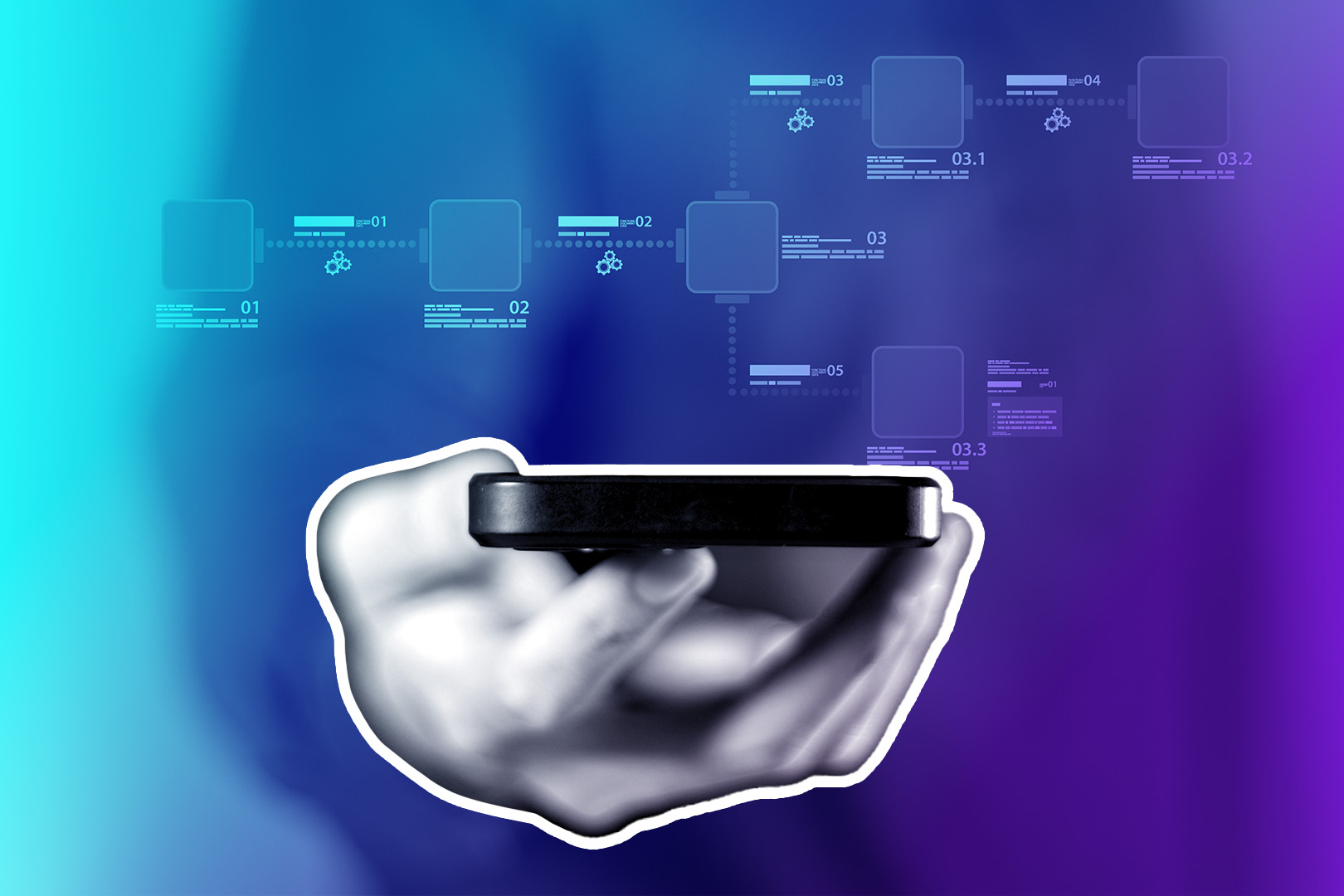All right, it’s acronym time.
We know you’re already well-versed in YOLO, TTYL, and NSFW. And then, of course, a whole bunch of acronyms are NSFW.
We’re not here to talk about any of them, though. (We figure your teenagers have that on lockdown.)
Today, we'll discuss SaaS CRM (customer relationship management tools for companies that sell software as a service).
A CRM aggregates all your customer data, sales efforts, deal information, and more in one place. CRM has become an indispensable tool for businesses worldwide in recent years, but nowhere is this more true than in the SaaS industry.
Today's successful SaaS companies use a CRM to track their projects and developments, and most smaller SaaS startups and businesses do. The need for a CRM has become more urgent as providers need to streamline processes, create a great customer experience, and keep that sales pipeline ever-full—all without losing the details.
Our goal today is to combine the two acronyms and determine which is the best CRM for SaaS companies. If you’re curious about the benefits of a CRM for software company needs, you’ve come to the right place. Today, we’re going to discuss what a CRM for SaaS is, why you should care, and how to pick one of these sales tools.
So WAYWF? Let’s get started.
What is a SaaS CRM?
We’ve defined CRMs and SaaS, but what is a SaaS CRM – and do you need one?
Any good CRM allows you to store all customer information in one place without focusing on keeping track of it—no more endless Excel files and manual data entry. A SaaS-specific CRM is one whose automation and customer information services are completely driven toward a software-as-a-service sales process, with tools specifically tailored to prospects looking for SaaS services.
It’s, like, AWT (A Whole Thing) – and your CRM better know it.
Core Differences Between a CRM and SaaS CRM
For some companies, any CRM will do. Small businesses that serve a local crowd with hands-on services such as plumbing, for instance, don’t need nearly as many tools from which global companies with customers worldwide would benefit.
That’s not to say plumbers shouldn’t use CRMs because they should. It just means they have more flexibility in the systems they choose.
SaaS providers, on the other hand, must be more selective.
SaaS-based CRM systems operate in the cloud, which allows for seamless integration and usage from team members anywhere in the world. That’s great, but your CRM must account for it. It needs features that:
- Enable differences in time zones to tailor your email automation to specific times and dates.
- Allow CRM-based calling to ensure you don’t have to pay a gazillion dollars to reach your prospects wherever they are
- Handle security, compliance, onboarding, and help desk services in a single platform
Also, keep in mind that:
- SaaS companies want to choose the best products from around the world, so their CRMs must be SaaS products, too, allowing for full installation and onboarding from anywhere (as opposed to traditional CRM products, which have to be installed on-site).
- Similarly, SaaS companies are tech-forward and expect seamless integration for all the tools their sales reps need, which means the CRM needs good API technology.
- SaaS companies “pack light” and don’t want a lot of clutter weighing them down, so they should avoid CRMs that require a lot of in-person infrastructure.
- SMBs that offer software as a service do their invoicing and take credit card payments online, which their CRM must accommodate.
The best CRM for SaaS companies should provide the above services and also address your pain points.
Pain Points that SaaS CRM Software Can Solve
So, how can a SaaS CRM fix problems and pain points in your business? That starts with knowing what the typical pain points are.

For SaaS companies, the most common include:
- Poor contact management, resulting in a leaky funnel and shoddy customer interactions
- Crummy sales automation so that you’re always doing everything manually with no greater plan
- A frustrating user experience, with constant software updates or IT calls
- Workflow confusion, where salespeople are never quite sure what to do next
- Poor forecasting that fails to create meaningful, measurable goals and objectives
Luckily, a reputable SaaS CRM platform can help to solve those pain points. Let’s take a look at what traits you should seek when exploring CRMs.
CRM Features that SaaS Companies Should Look for
All right, now you know why you need a CRM for SaaS specifically and what pain points it should address. But what are the hallmarks of a good customer relationship management system? In this section, we will list top features that any SaaS company should look for in their CRM solution.
Lead Generation
The front and center of any good sales CRM, SaaS-driven or otherwise, is that it must amplify your lead generation efforts.
Yes, it is possible to mine leads from many places, and you can manually enter them into Excel spreadsheets if your Luddite heart so desires. However, it’s much more effective to use a CRM that 1) captures leads for you from the variety of sources you’re plugged into and 2) uploads them automatically.
For instance, let’s say you offer free downloads in exchange for an email address on your website. When you get that email address, you ideally want it logged in the system, along with any details provided at the time.
Generating leads in this fashion allows you to check your system every morning and see what popped up. Thus, you’re completely skipping the cumbersome chore of going through and adding those leads yourself. It's a major life hack.
Lead Scoring
Okay, so you’ve got a bunch of leads, but are they ready to hear from you? What’s the likelihood that they’ll actually buy in after all of your sales efforts? That’s where lead scoring comes in.
This is a relatively simple concept with ringing implications for the success of your business. It means taking your incoming leads and ranking them according to their behavior.
For instance, did they open an email? Click a link in that email? Register for a webinar? Add points. Did their email address bounce? Have they unsubscribed? Are they not going to add substantially to your bottom line even if they do sign on the dotted line? Subtract points.
The resulting figures allow you to decide where to place your attention, but can you imagine doing that math all day long? Gross. That’s why you need a SaaS-oriented CRM that will do it for you, paying special attention to the signifiers of what makes a good lead for your particular business model.
Customer Retention
Another primary job of a CRM for SaaS is to make sure your customers disappear into the ether. After all, it’d be a shame to spend all that time cultivating leads, wooing prospects, and closing deals if you just let them slip away later.
As such, any good CRM will have functions that help you keep track of your customers after they sign, cross-sell, and upsell to them, and reward their loyalty.
Building a Sales Funnel
Your funnel is the bread and butter of your sales cycle. If you don’t use a product that enables the entire lifecycle of sales activities, then it won’t do the trick.

A CRM for SaaS should help you with all aspects of pipeline management, including:
- Generate and score leads
- Reach out to them
- Turn them into prospects or people who have demonstrated interest
- Provide additional information
- Track all touchpoints
- Suggest automation and outreach types
- Collect any information they provide along the way
- Record all details of the deal once closed
- Help you retain those customers after a purchase
- Put stalled prospects back into the funnel
… and so on. We’re talking top to bottom; your CRM better make it happen.
Team Collaboration
Although some sales cultures make it seem like everyone is out for themselves, truly prosperous companies know it’s all about collaboration. When choosing a CRM, prioritize one that can track everyone’s activities and enable sales reps and teams to work in tandem.
Outreach
Whether you’re a small or big business, you need excellent outreach services from your CRM. The same is true whether you have dedicated sales and marketing teams or are a small, all-in-one department. Sales is a numbers game; if you’re not constantly reaching out, you’re losing.
Look for a CRM focused on communication that allows you to reach out to prospects via phone, email, or other channels. Make sure it can track any metrics you generate to measure your efforts.
Pro Tip: Close is a communication-based CRM that helps sales reps double their productivity. Learn how Close lets teams spend more time talking to prospects and closing deals:
Contact Information Storage
Last but certainly not least, your SaaS CRM must track your contacts. Segmentation should allow you to bucket your leads and prospects according to demographic details, behavioral characteristics, and other granular data, which is the best way to connect with them.
Also, sales email automation should enable continuous outreach and follow-up without you having to think about it, while customer support must facilitate the needs of prospects or customers when they call you.
Top 7 SaaS CRM Solutions to Grow Revenue 🚀
Now that you know more about what to look for, here’s a brief list of the top CRM options for SaaS companies.
1. Close

Pricing: Starting at $9 per month, billed annually (includes one user)
Best for: SMBs that focus heavily on outreach and direct customer interaction
Customers routinely report that Close offers an ROI that vastly overshadows its cost. From infant startups to large and scaling companies, it is a safe bet with a range of expert services to enable any SaaS company to succeed. Its free resource library helps you immediately unpack your sales goals and make the most of the Close environment.
Plus, it covers absolutely every part of the pipeline, from the first customer touchpoint to the finishing touches on every deal. Track calls, emails, SMS campaigns, video calls, sales coaching, and more, all in one place. With hundreds of integrations, you won’t have to give up your favorite tools either.
Pros:
- Many layers of functionality for all user types
- Combines the best of good pricing with a user-friendly system that doesn’t require a killer learning curve
- Communication-focused features that boost productivity
- Close has Workflows that streamline processes and automate lead assignments, communication steps (emails, SMS, calls), and follow-up tasks.
- Mobile app accessibility: Close now offers a convenient iOS mobile app catering to users' needs on the go. This recent addition allows iPhone users to access their CRM platform seamlessly from their mobile devices. Furthermore, the Android app has recently been released and will extend this accessibility to a broader audience, empowering users across different mobile platforms.
Cons:
- Although many features are plug-and-play, plan for more time in the system to access them all

2. HubSpot

Pricing: Starting at $15 per user per month
Best for: Larger SaaS companies that focus heavily on content marketing (Ready to embrace AI to transform your content marketing? Learn how here.)
Another SaaS CRM with a good track record, HubSpot helps you manage your customers, view employee sales efforts, set up meetings, and analyze your results. Like Close, it has a good reputation in the business, even if its tools aren’t quite as robust.
Pros:
- Patented hub-and-spoke content training and tools
- Easy-to-use features that don’t require a big learning curve
- Integrated marketing & sales tools
Cons:
- It is not super intuitive, so while you can get started easily, you may not be able to take it to its ultimate end without a lot of work.
- A more expensive option for those starting out.
- While their marketing tools are top-of-the-line, HubSpot’s sales tools leave something to be desired.
3. Pipedrive

Pricing: Starting at $14 per user, per month
Best for: Companies that focus on sales and marketing
As the name implies, Pipedrive is all about that sales pipeline—and it was built by actual salespeople, so to that end, the software works well for managing your sales funnel.
With web and mobile software, it’s easy to access on the go, allowing you to track your customer outreach efforts from anywhere you are. It will help you get more qualified leads and grow your SaaS business. However, once leads have become paid customers, the software lacks features to help maintain those relationships moving forward.
Pros:
- Clear and user-friendly dashboard
- Not a ton of onboarding time to learn the system and put it to use
- Many ready-to-go sales and marketing tools
Cons:
- Limited functionality for templates and documentation
- A poor focus on serving the customer post-sale
- Many features are locked behind paid add-ons
4. Zoho

Pricing: $0 for up to three users with very limited features; Otherwise, starting at $14 per user, per month
Best for: Large companies that love flexibility and have the resources needed to develop their CRM processes.
A combination of email, customer service, bookkeeping and analytics software, Zoho bills itself as an end-to-end SaaS solution, great for companies that want to build a CRM in their own image from the ground up. Its powerful suite of programs integrates easily with other tools such as Gmail and works well on desktop and mobile, from anywhere with a signal.
It uses lots of cutting-edge tools, like KPIs and predictive intelligence, to give you those benefits ... but at the cost of an absolutely brutal learning curve.
Pros:
- Zoho is a comprehensive software that includes all the functionality anyone could dream of
- Great for CRM experts looking to take things to the next level (and by ‘next level,’ we mean Mt. Olympus)
Cons:
- It is very, very difficult to get started using this system with all of its moving parts
- Requires considerable dedication of time and resources for onboarding
5. Salesforce

Pricing: Starting at $25 per user, per month with limited functionality
Best for: Sales and marketing teams that utilize marketing, automation, analytics, and customer service
Founded more than two decades ago, Salesforce has a venerable position in the CRM universe. Its tools help users to wrap their sales, customer service, marketing automation, and analytics all into one dashboard. It’s a great way to simplify your sales efforts.
Pros:
- Decades in the industry learning what clients want most out of CRM software
- Includes all the main tools you’d need in the SaaS industry, from sales and marketing to ticketing and customer service
Cons:
- Sometimes sluggish
- Has pretty weak updates without a lot of added functionality each time
- Pricing can be confusing, and the base rate may not cover the functionality needed
6. Zendesk

Pricing: Starting at $19 per user, per month
Best for: Newer organizations that don’t need tons of functionality
If you find Salesforce too complicated (a common report from users), Zendesk might prove a good alternative.
It is highly streamlined, which means it doesn’t offer as robust an environment as Salesforce or an option such as Close, but it might be better for a first-time CRM user. It’s more expensive than some of the other options, though, so keep cost in mind.
Pros:
- Highly streamlined and easy for beginners to use
- Fast and reliable with few outages or slow loading times
- What functionality they have is simple to learn
Cons:
- Not as granular as those who are familiar with CRMs might expect
- Not a good choice for intermediate or advanced users
7. NetSuite

Pricing: Only available by quote
Best for: Companies looking for a CRM and financial solution in one
Combining accounting and eCommerce software with sales solutions, NetSuite is a good all-in-one for small to medium-sized businesses that don’t have dedicated departments for finance, marketing, and sales. However, while it’s a great solution for overall enterprise resource planning, it isn’t as granular as a system devoted entirely to sales and more sales.
Pros:
- Accounting, eCommerce, and customer resource management software all in one
- Simple to use and applicable across myriad departments
- A good choice for startups that don’t have siloed departments dedicated to sales and finance
Cons:
- Due to the larger breadth of functionality, its granularity is less robust
- Folks who love a deep CRM dive may be disappointed at the shallow bottom
Other Considerations
When trying to decide between the above, keep in mind questions such as:
- What do I need my software to integrate with? Systems you rely on, such as Microsoft, Slack, or Zapier, come to mind, and you want to ensure you can still use them after making the CRM jump.
- What specific solutions do I need? Email templates, marketing automation, spreadsheets, chatbots, and training modules might fit under this heading. Ditto advanced features such as CRM calling.
- Which SaaS CRM has the most resources available for me to use? That includes customer support, free resources, and training content.
Whatever you do, there’s no need to be hasty. Watch the demos. Do the free trials. Check out free resources. Talk to your higher-ups and your team about what they need and expect as well. That way, you only have to make the switch once.
Choosing Your SaaS CRM Solution
Now, all that’s left is to make your choice. When doing so, make sure to check off the following list of tips to maximize your chances of finding the right system.
- Understand the difference between a general CRM and one designed specifically for SaaS companies: While any customer relationship management system will improve your sales process, it’s always better to drill down. SaaS companies offer a specific service, and you want your sales pipeline to reflect that, so choose your CRM wisely.
- List your pain points and make sure your CRM option will address them: For instance, if your company has a leaky pipeline and you routinely lose prospects halfway, choose a CRM that specifically addresses this with ready-made sales sequences that capture lost leads. Make sure it will also provide sales automation, assist in forecasting, and meet your workflow needs.
- Make a checklist of important features: Your CRM should cover lead generation, lead scoring, customer retention, sales funnel creation and maintenance, pipeline management, team collaboration, prospect outreach, and contact information storage. Don’t settle for less.
- Explore your options thoroughly: There are myriad CRM options from which to choose, but beware. The market is flooded with lazy lookalike software that will not only fail to get the job done but it might also make the process even more confusing. We strongly recommend choosing your software from the above list of companies. They have proven track records helping SaaS startups and businesses just like yours to configure workflows, make real-time decisions and integrate with the CRM tools that are most important to you.

While we may be biased, we truly believe that Close is hands-down the best solution, which is why so many SaaS companies choose us as the right CRM for them. With reasonable pricing, a huge range of capabilities, and demonstrable customer success, you’ll get everything you need all in one place. Now you can:
- Send automated emails to every lead and prospect
- Coordinate sales calls, use smart scripts, and designate sales workflows across your team
- Track the effectiveness of your sales funnel and efforts therein
- Collate all your customer information so you never miss an important detail again
Want more information? Watch a 10-minute software demo to see what Close can do for your SaaS sales team.
Or, if you’re ready to get some hands-on experience, try our software free for 14 days. It’s never too late to make a change for the better.










.jpg)

